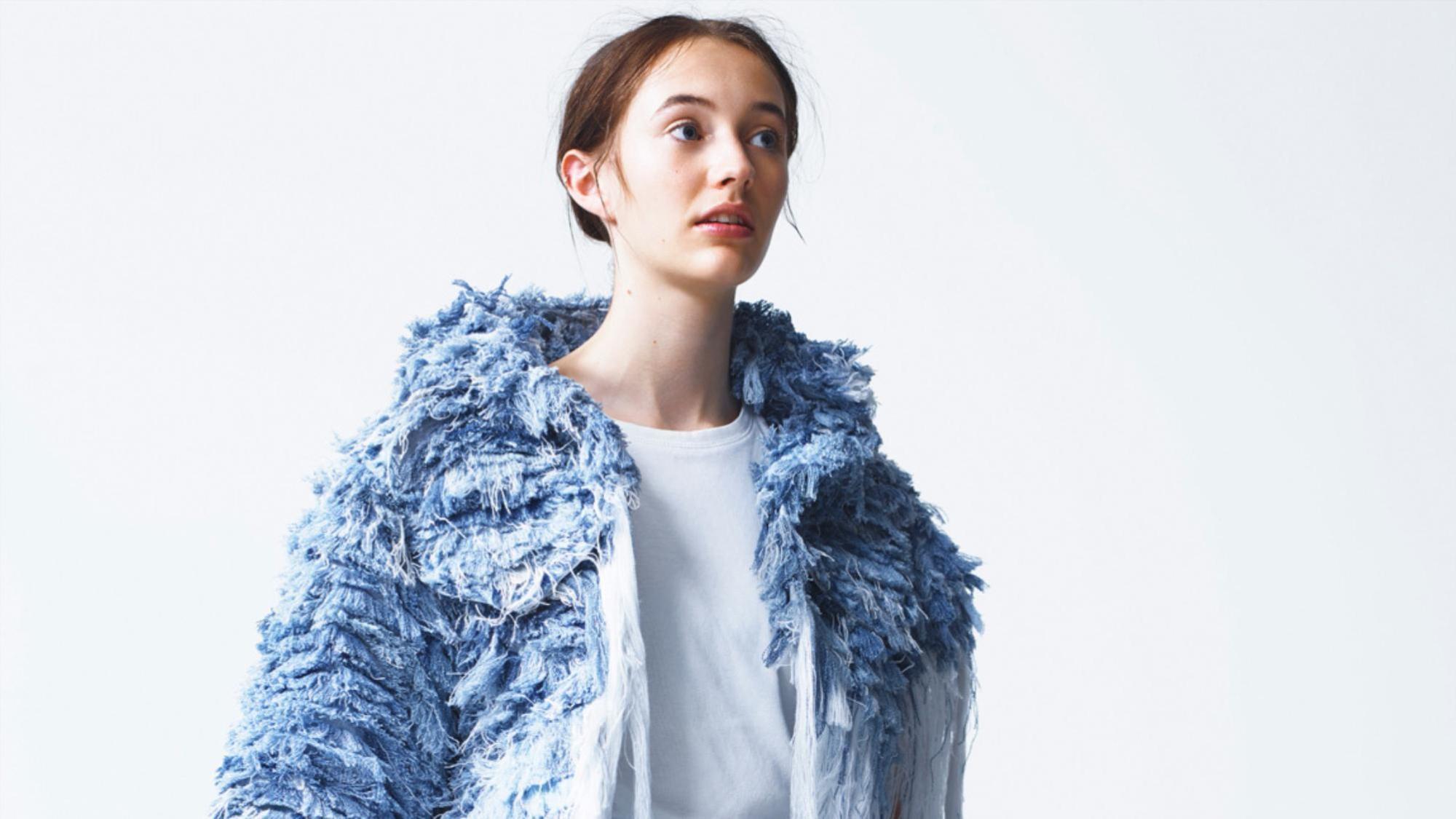“Sustainable fashion” is a term that has come to signify earth tones, boring manifestos, and flowing silhouettes. But a new crop of young designers, who were children when An Inconvenient Truth came out, have grown compelling brands with the planet in mind. As the fashion industry has become one of the world’s leading causes of pollution, these designer-activists are proposing a new approach to outfitting you. Instead of constantly putting out ephemeral, polluting, trend-driven pieces, ethical fashion brands participate in slow fashion. Designs that are sustainable, vegan, recycled, or sometimes all three, with a focus on craftsmanship and detail. The new, climate-conscious gear could be anything from a glossy recycled nylon jacket from Suzanne Rae to a pair of hand-worked flared jeans by London phenom Faustine Steinmetz. Sustainability is the hidden story of these pieces, not their sole identity. Here are five emerging brands proving the fashion system is ripe for revolution.
BreeLayne
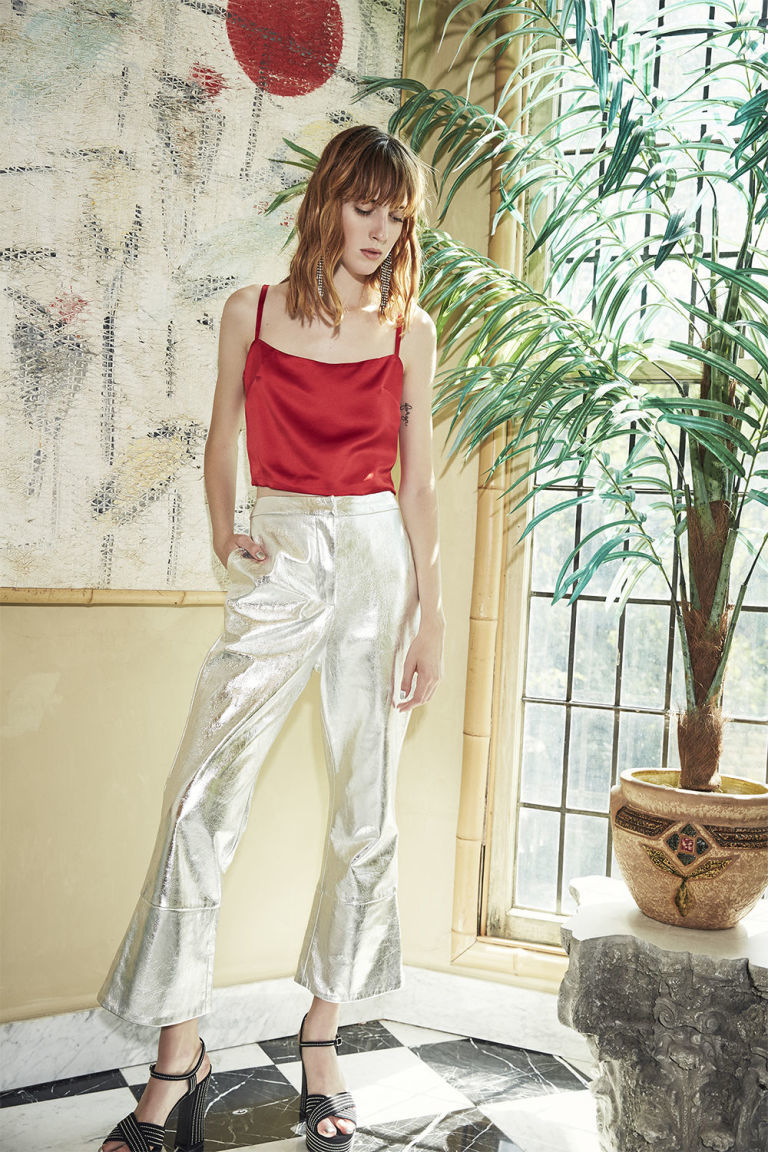
For L.A.-based BreeLayne, being environmentally conscious is just as important as the clothing itself. But don’t think that limits the creativity of her designs. From a denim tuxedo with a ruched jacket and exaggerated wide-leg trousers to a hooded checkerboard jumpsuit, her pieces provide a surrealist take on the aesthetic of the Tumblr generation.
“We only use pre-existing fabrications and environmentally safe techniques and practices, so there can be some restrictions,” says the designer. “But so far, it hasn’t really impacted my process. It actually inspires my design process because I have to work within the boundaries of what already exists in the world, and in some ways that limitation can be freeing. I’m usually able to find what I need to bring my vision to life.” Exploring the world, thanks to her travel agent mom, also serves up inspiration.
Suzanne Rae
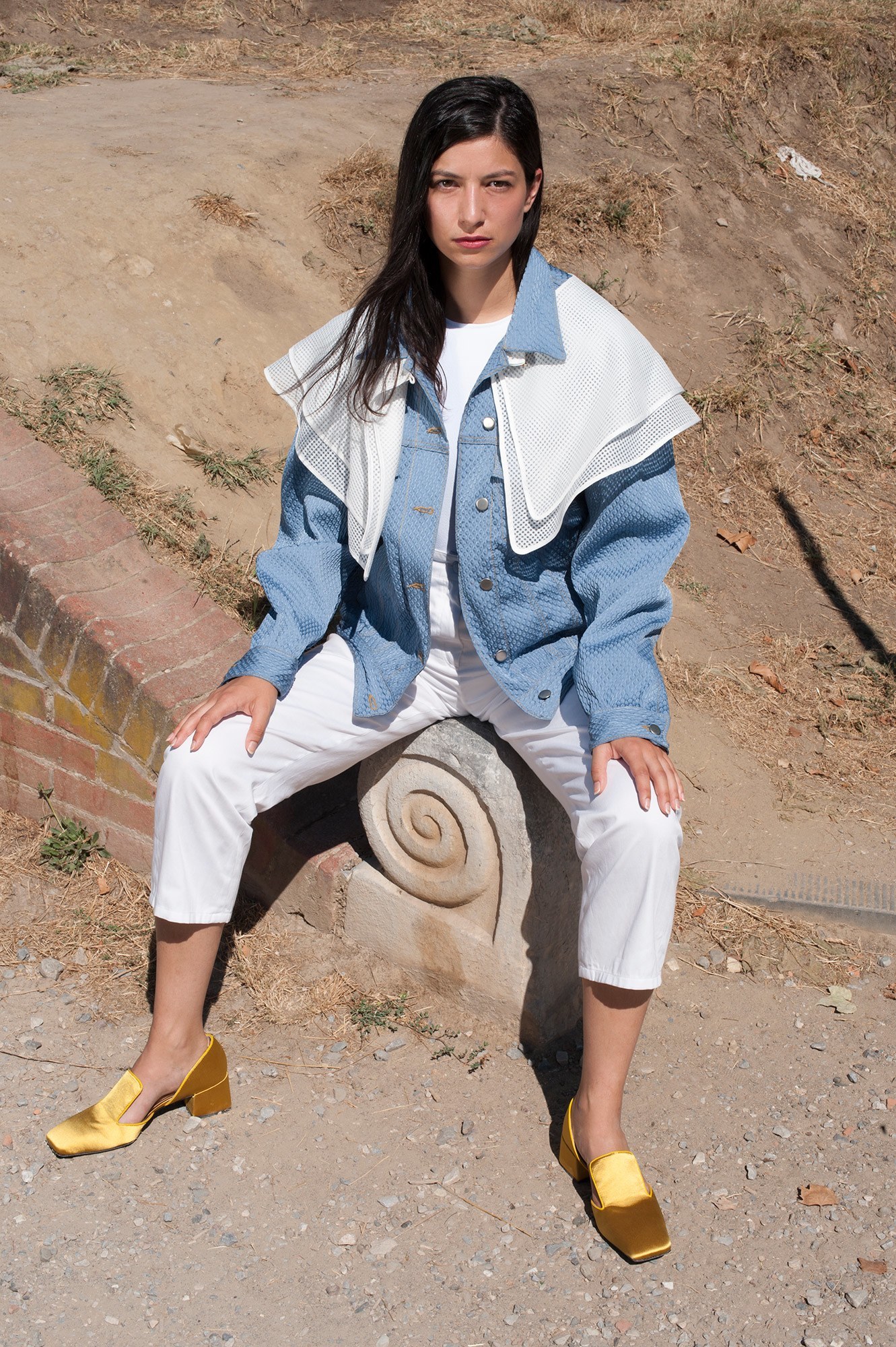
“Which version of yourself do you choose to be today?” asks Suzanne Rae‘s website before you click through into her romantic world. It’s a place where crisp linen pants with exaggerated pockets find a home alongside shiny nylon dresses, and blouses are sewn with patches that read “I am not your seductress.” The Brooklyn-based designer’s pieces have the playful feel of clothing you’d take to summer camp. But touches like sharply tailored square blouses and full-length coats in dusty blue and tartan give the spring/summer 17 collection an adult edge.
Rae extends her feminism to every sector of the brand, working with organizations like Girls Inc, a nonprofit that focuses on instilling confidence in girls across the U.S. “When I started my line, I thought that if I were going to put out more product into this already over-saturated, over-stocked consumer society, I should do whatever I can to make my product not only meaningful, but also environmentally friendly,” says Rae. “So I try to source sustainable materials and produce socially responsibly,” she adds, such as using recycled nylon or plastic. These are pieces for women who aim to please only themselves.
Maggie Marilyn
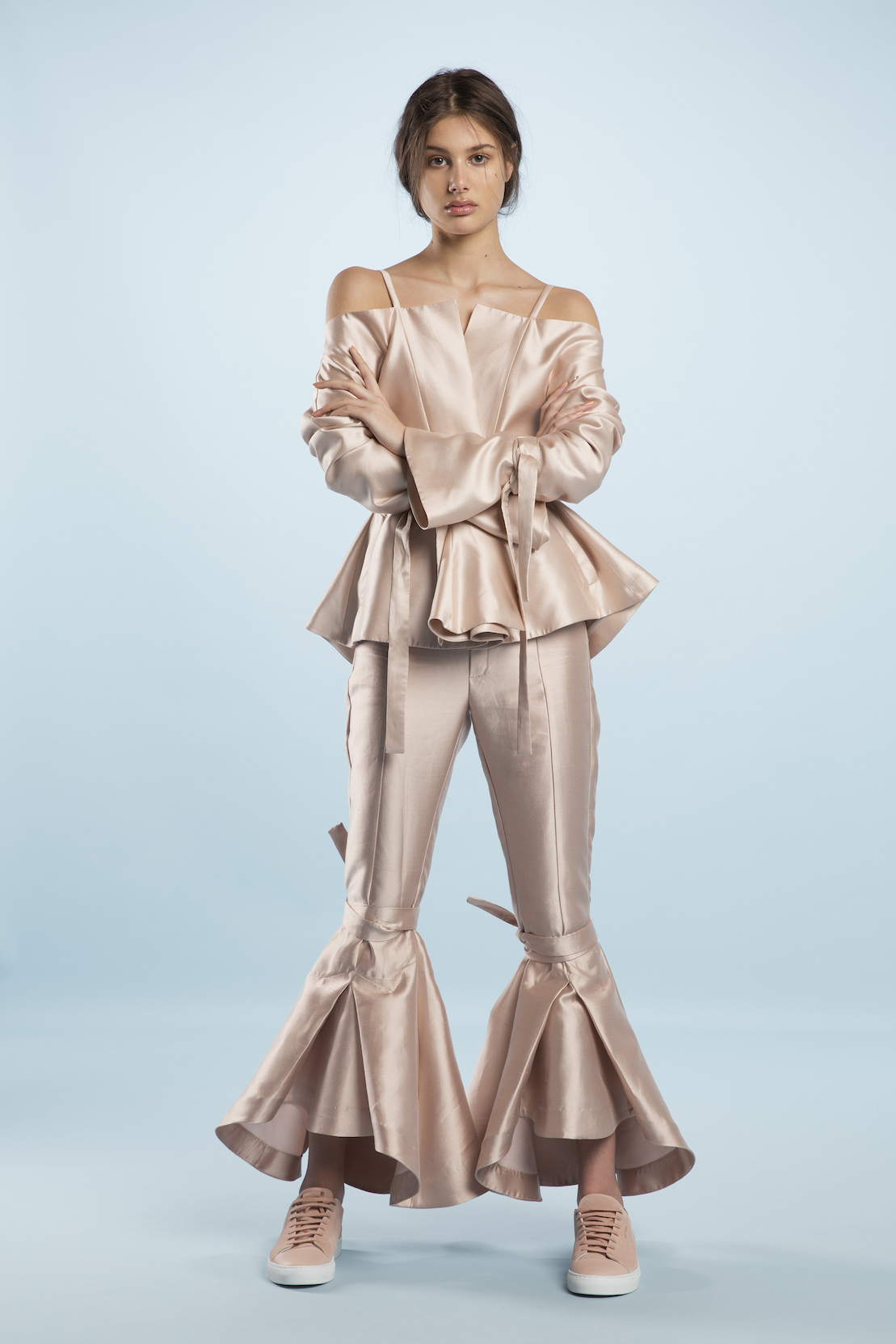
Innovation meets minimalism in a trippy definition of simplicity for Maggie Marilyn. The line shows monochromatic looks with over-the-top detailing that still manage to feel sleek. White skirts are finely tiered, and styled alongside matching jackets, while denim takes on a life of its own with ruffles galore, raw hems, and structured bell sleeves. Designer Maggie Marilyn Hewitt was inspired by the idyllic New Zealand landscape she grew up in, and the respectful way in which she interacted with it. This gave way to the idea of livable luxury and sustainability. For Hewitt, the most important thing is “knowing where all of our fabrics come from, that everyone involved in the production of these fabrics is paid a fair living wage, and treated with a strong level of respect.” She adds, “All of our garments are made and distributed from New Zealand and I truly love the relationships I have built with our makers to actually know each person on a personal level. It is really important to me that our clothing is made with love.”
Faustine Steinmetz
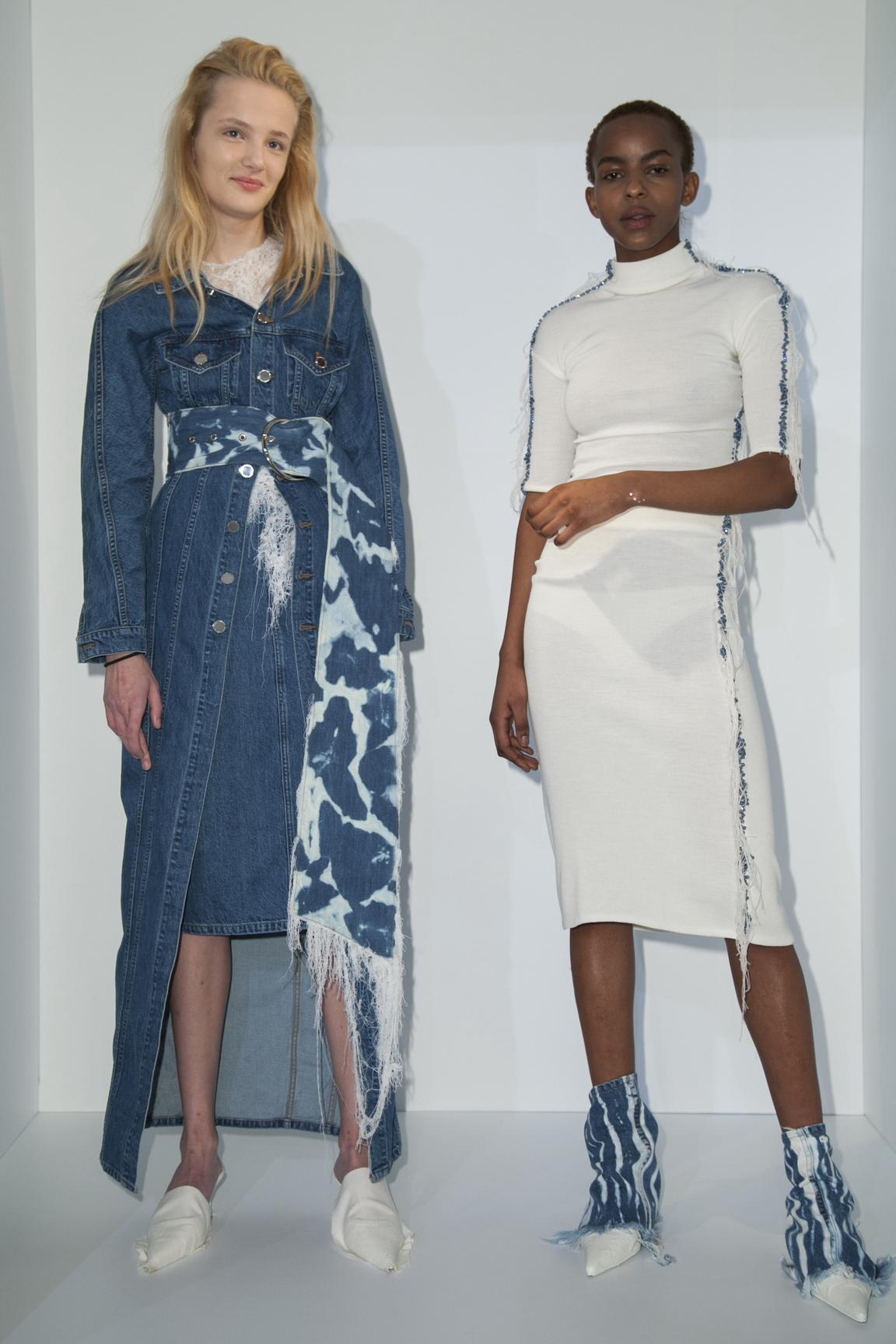
Paris-born Faustine Steinmetz is known for her denim. But these are not your standard blue jeans. Instead, you’ll find denim literally dripping in Swarovski crystals, tattered with fray that reads more like stardust than disorder. You’ll find jean jackets puffed, pleated, and bleached to resemble pinstripe suits cinched with belts. This is denim that’s had the VIP treatment, reimagined not as a textile, but instead as a color that you’d see in the night sky. Steinmetz takes a haute couture approach to her designs by creating everything by hand and working sustainably. For fall/winter 16, half of the denim she used was recycled, as well as the water used in the recycling process. Late last year, Steinmetz was part of a plea to Central Saint Martins fashion students not to use fur in their collections.
EVERYBODY
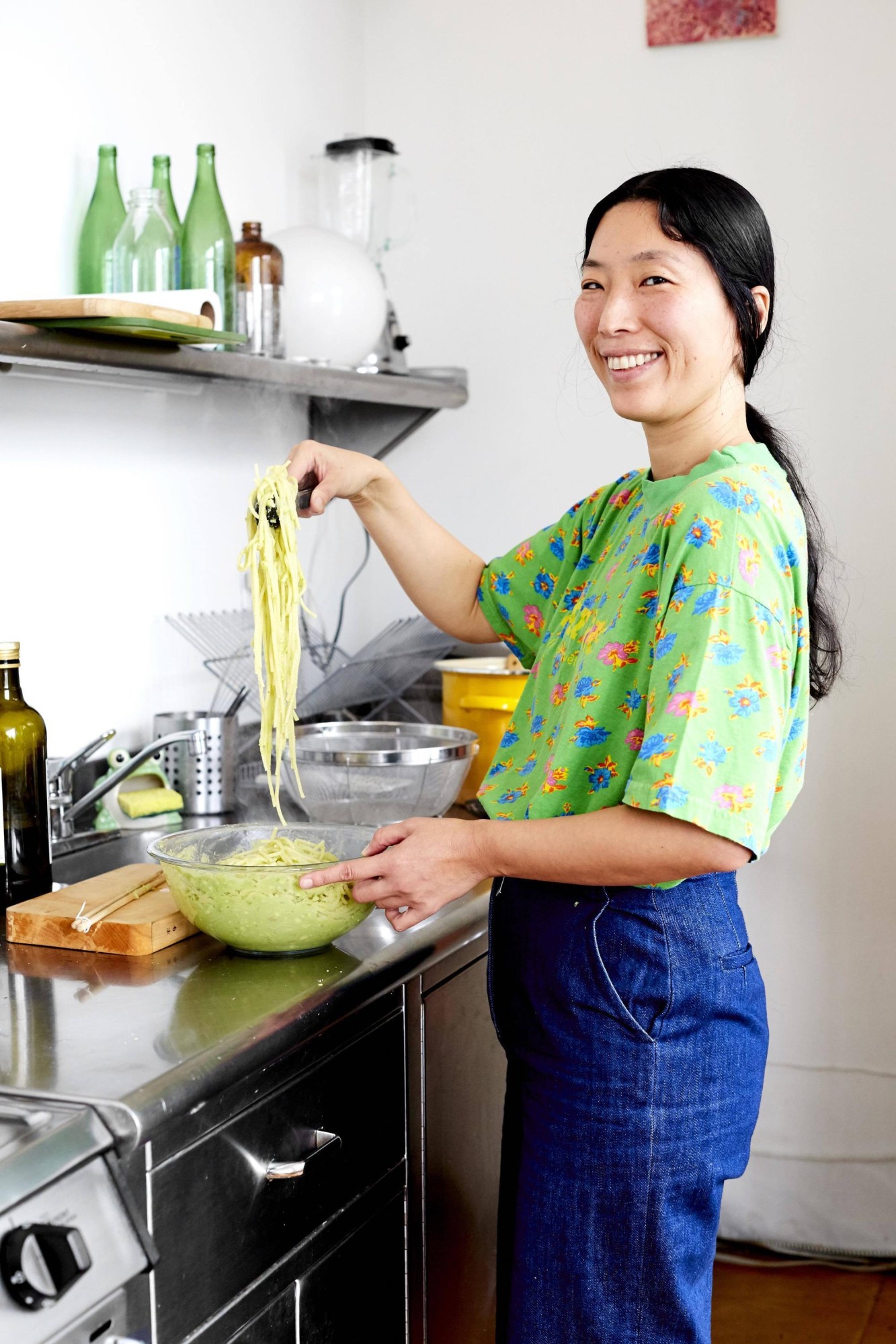
EVERYBODY is that rare thing: a brand for everyone, by everyone. Or at least, by populist trendsetters like Adwoa Aboah, the two-year-old Akira, and 80-year-old Delores Kerr. Founders Iris Alonzo and Carolina Crespo invite like-minded collaborators to make the pieces they most want to wear. And the results, all made in Los Angeles, include lovely things like a “safe place poncho” and totally recycled “trash” t-shirts.
“Exploitation is not progressive,” say Iris and Carolina. “No one wants to support companies that potentially damage the planet, but unfortunately it’s happening in fashion every day. To shift an ugly industry, those who are responsible for putting stuff on the planet must take an active role in caring about the way things are made while finding customers that feel the same and want to learn how they can make a change.” The EVERYBODY customer also votes with their wallets. “They value well-made things and prefer to buy smarter, less often,” they say. Which is a Marie Kondo-approved philosophy that helps our psyche as well as the environment.
Credits
Text Gabriela Herstik
Photography courtesy the designers (Suzanne Rae: Christian Defonte, Faustine Steinmetz: Mitchell Sams, EVERYBODY: Harry Eelman)
